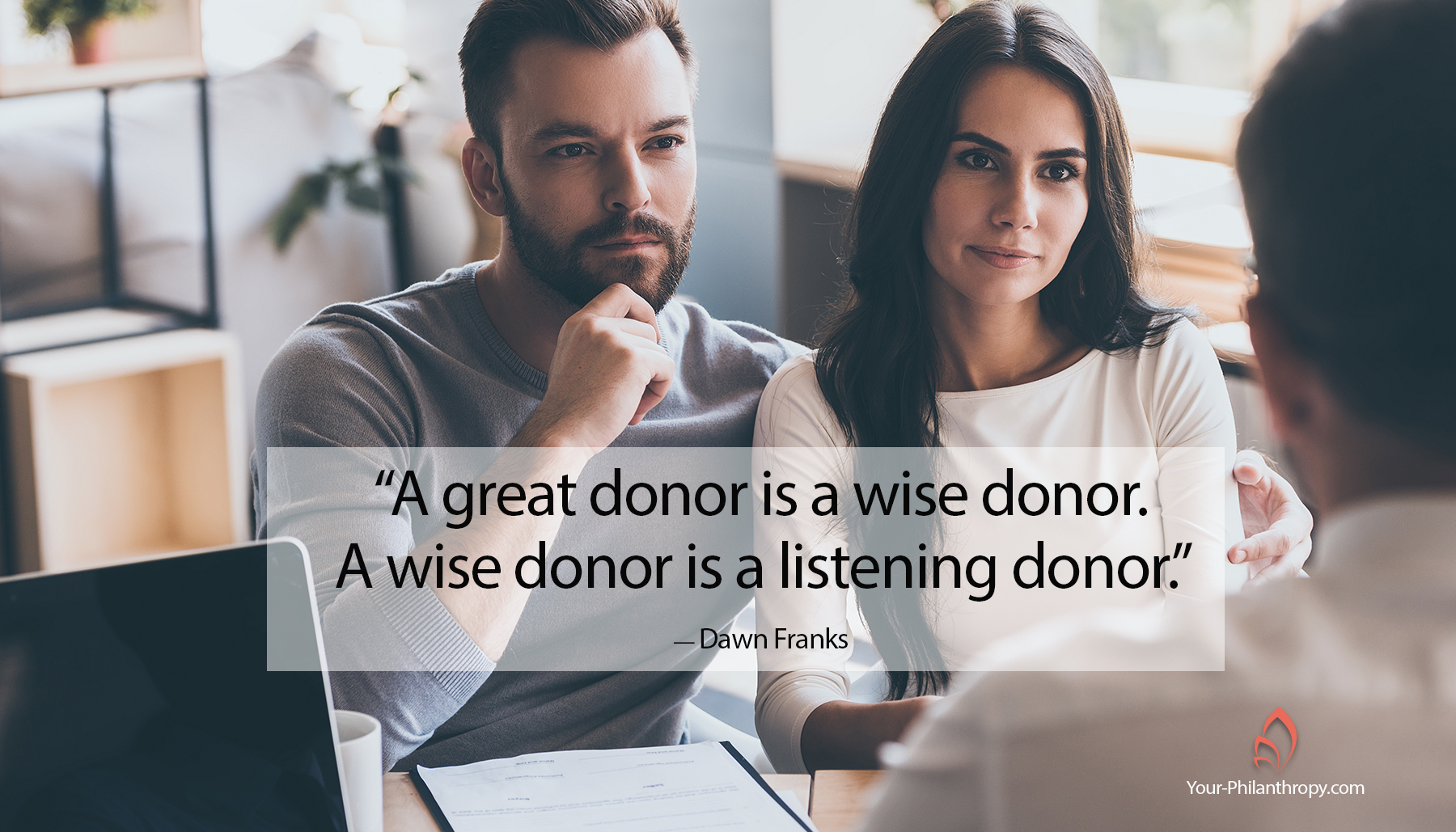Listening to a book about listening is a challenge. Now I question my listening skills, and as the narrator speaks my mind drifts between memories of failed listening with family, co-workers, friends and even donors. For example…
Donor Offers – No One’s Listening
Yesterday, a donor shared a frustrating conversation with a nonprofit organization. She offered a significant donation amount. The donor thought the amount was clear and asked for a few pages of written explanation on how it would impact clients. After reading what the organization had written, she was discouraged because the numbers didn’t add up to the offer. The executive director had demonstrated an inability to listen to the donor.
Donor Listens, but I Answer the Wrong Questions
Ray was a banker, with a career in finance. He and his wife had retired to our community as their “next in life” destination. He had been here long enough to find at least three other guys to play a few rounds of golf with several days a week. As is the nature of golf, business deals and conversation are common. Someone in the foursome recommended he call me, then an executive director of a local nonprofit.
He did, interested in learning about the organization and considering a donation.
We set a time for him to come by the office. I joined Ray on the guest side of my desk. That’s supposed to be a good listening skill. With short introductions out of the way, he asked about the organization. I launched into services and client stories.
Ray interrupted me with a pointed question about our budget which I had not touched on during several minutes of talking. In fact, no donor had ever asked that targeted a question. I fumbled for an answer, and he just listened. He didn’t help me out; he just waited and listened.
Listening to an executive director explain programs and services, and even share client stories is no surprise. It is so typical that most executive directors long ago perfected that part of their talk. What I hadn’t perfected is the art of the lengthy conversation about my organization because so few donors asked in-depth questions and rarely listened to my answers.
3 Quick Tips for Better Donor Listening Skills
1. Ask questions that cause the executive director, board member or your friend volunteer to pause before they answer. A good sign. The answer that requires a pause is more likely to get a meaningful answer.
2. Listen to the answer and ask at least one more specific follow-up question. That’s a sign you were listening to the answer.
3. Try to find at least one question that triggers the response “I’ve never been asked that before.” Bingo! Now they’re thinking, and you are listening.
A great donor is a wise donor. A wise donor is a listening donor.
What about the donor who was frustrated because the executive director wasn’t listening? It’s a moment of decision. Is it worth it to start over and ask and listen again, or make the decision to move on to another organization where a listening executive director will work to see your donation has an impact?
At the heart of every exchange is the ability to listen. Deep listening assumes honesty and trust, earnest and thoughtful dialogue and an ability to be tactful when necessary.
The three donor listening tips I’ve given you above aren’t at all simple. You have an opportunity to engage in conversation with key staff or board members that honor and value their work and commitment while also learning what can make your donation even more impactful.
Did I mention the name of the book? The Lost Art of Listening, Second Edition; How Learning to Listen Can Improve Relationships, by Michael P. Nichols.
Nichols says our relationships improve when we listen well. For me, it only follows that we’ll donate better by listening better. If you read it, let me know what you think, and especially what I missed while listening.


0 Comments